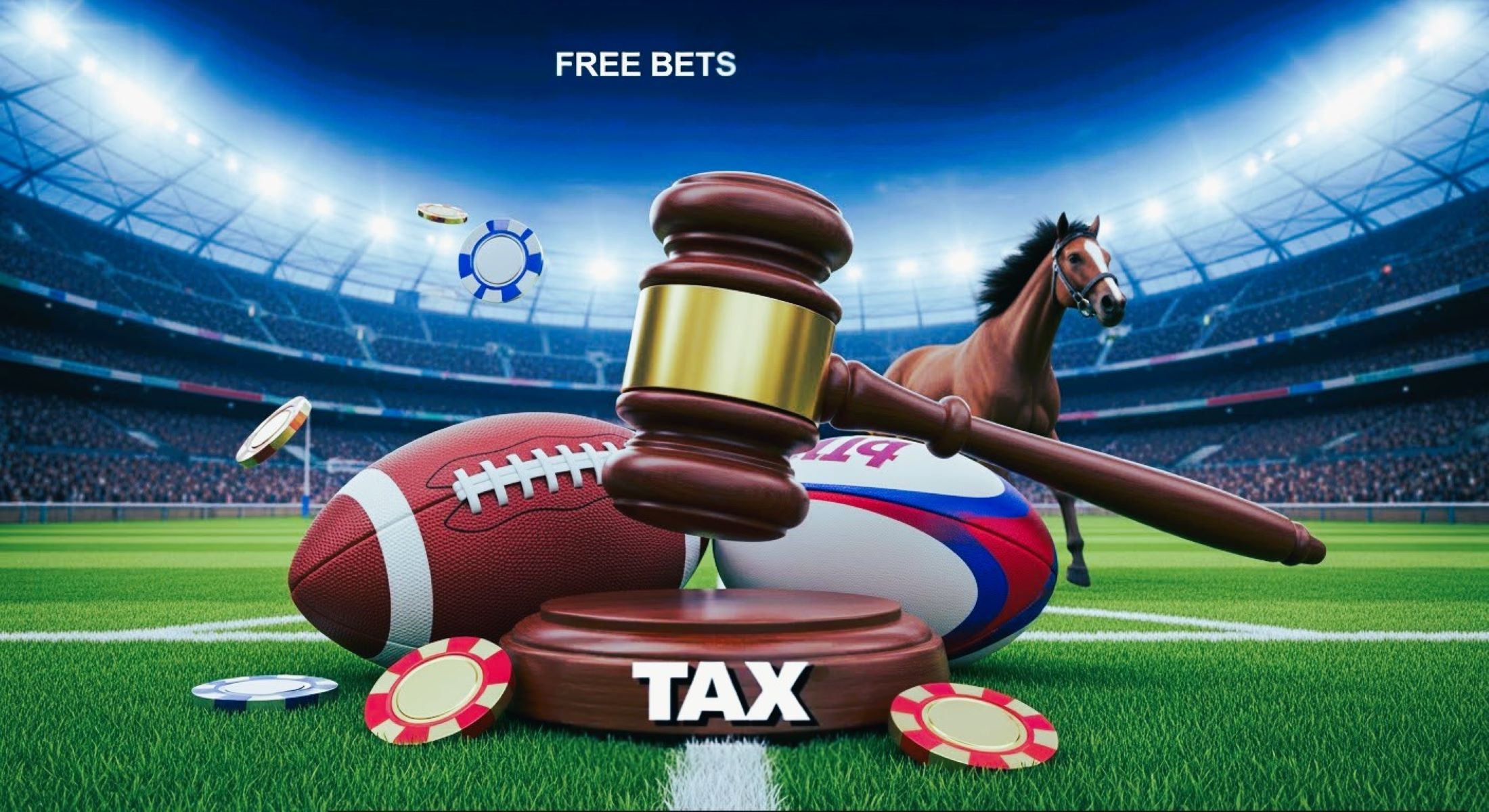Let’s be real—getting something for free always feels good. And when it comes to free bets, that’s even better, right? Whether you’re just a weekend bettor or a full-time punter, this article breaks down the complex world of gambling taxation in South Africa—especially when it comes to winnings from free bets.
Gambling Taxation in South Africa
South Africa boasts a well-established and strictly regulated gambling industry that caters to a wide range of players. Whether it’s land-based casinos, horse racing, lotteries, or the booming online sports betting scene, there’s something for everyone. The National Gambling Board oversees the industry to ensure that all operations comply with legal standards, maintain fairness, and protect consumer rights. This regulatory framework helps keep the gambling market safe and transparent, balancing both player interests and government oversight.
The sector’s maturity means that gambling operators must adhere to strict licensing rules, while players benefit from fair play and responsible gambling measures. Moreover, the industry’s regulation helps prevent illegal gambling activities, which is crucial for the government to manage tax revenues properly and maintain control over gambling-related social issues. This structure also impacts how gambling winnings are viewed and taxed under South African law.
Why Taxation Matters in Gambling Activities
Why is there so much attention on taxing gambling winnings? Simply put, governments need revenue to fund public services, and gambling can generate significant income that should be fairly taxed. Just like income from salaries or businesses, if gambling winnings become a regular or substantial source of money for an individual, they can fall under taxable income. This is important because unchecked gambling earnings could otherwise create loopholes for tax avoidance.
Taxation matters not only to secure government funds but also to ensure fairness between taxpayers. If gambling profits are ignored for taxation, people who rely on gambling as an income source could gain an unfair advantage compared to those paying taxes on regular jobs or businesses. Therefore, clear tax guidelines help maintain equity, deter illegal gambling, and promote responsible financial behavior among gamblers.
Free Bets
Free bets are marketing tools offered by betting companies to attract new customers or reward existing players. Essentially, they allow bettors to place a wager without risking their own money, making it a no-loss opportunity. These offers are popular because they encourage players to try out new platforms or bet on events they might otherwise avoid. The bookmaker essentially provides you with a “free ticket” to bet, hoping you’ll stick around and bet more with your own money later.
Besides being great promotions for players, free bets help bookmakers increase engagement and loyalty. From the bettor’s perspective, free bets represent a chance to win real money without spending any of their own. However, these bets usually come with terms and conditions, like minimum odds requirements or restrictions on withdrawal, to balance risk on the bookmaker’s side.
How Do Free Bets Work
Typically, when you sign up or deposit funds on a betting site, you might receive a free bet credit—say R100—that you can use on a qualifying event. If your bet wins, you usually only get the profit from the bet, not the stake itself. For example, if you place a R100 free bet at odds of 2.00, and it wins, you will receive R100 profit (2.00 x 100 = 200 minus the stake of 100), but not the R100 stake because that wasn’t your money.
This system encourages players to take calculated risks and experience betting with less financial pressure. It’s important to read the fine print because free bets often have expiration dates and other usage restrictions. Understanding how your winnings are calculated and what you actually receive helps avoid surprises when cashing out.
Popular Types of Free Bets Offered by Bookmakers
Bookmakers design various types of free bet promotions to appeal to different players. Some of the most common include:
- No deposit free bets: You get a free bet simply for signing up, no deposit required.
- Matched deposit bonuses: The bookmaker matches a percentage of your deposit with free bet credits.
- Risk-free first bets: If your first bet loses, you get your stake back as a free bet.
- Cashback on losses: A percentage of your losses over a period is returned as free bets or credits.
These offers aim to attract users and keep them engaged by reducing their financial risk and increasing the chances of winning. Each type has its own terms, so always check the details before participating.
Legal Framework Around Gambling in South Africa
National Gambling Act Overview
The National Gambling Act forms the foundation of all gambling activities in South Africa. It legalizes and regulates the entire gambling industry, covering casinos, sports betting, lotteries, and more. This legislation ensures that gambling operators work within clear legal boundaries, promoting fair play and consumer protection. Importantly, the Act also sets out rules regarding taxation, helping the government secure revenues from gambling-related income while maintaining an orderly market.
This law aims to strike a balance between encouraging a thriving gambling industry and safeguarding public interests. It mandates that all operators must be licensed and comply with strict requirements, such as preventing fraud and money laundering. Thanks to the Act, players can feel more confident that their gambling experiences are safe, fair, and transparent, while the government can effectively monitor and manage the sector’s growth.
Role of the South African Revenue Service (SARS)
The South African Revenue Service (SARS) acts as the country’s tax authority and plays a crucial role in determining how gambling winnings are taxed. SARS sets the rules for what kinds of gambling income must be declared, how taxes are calculated, and when payments are due. However, when it comes to free bets, SARS hasn’t provided clear or specific guidelines, which creates some uncertainty for both bettors and operators.
Despite this ambiguity, SARS retains the right to collect taxes on gambling profits considered to be regular income, especially when betting is done professionally or systematically. For casual players, this usually isn’t an issue, but those who treat gambling as a primary source of income may face strict tax obligations. SARS’s role is therefore essential in defining the line between taxable earnings and casual winnings.
Provincial Licensing Authorities
In South Africa, each province has its own licensing authority responsible for regulating gambling within its borders. These bodies issue licenses to gambling operators, monitor compliance with local laws, and enforce provincial gambling regulations. Because each province can have slightly different rules or licensing requirements, gamblers and operators must be aware of the specific regulations that apply in their location.
This provincial approach allows for flexibility and better local oversight, as gambling markets in provinces like Gauteng or Western Cape may have different characteristics and needs. For online betting especially, where operators might serve clients across multiple provinces, understanding the jurisdictional rules is key to operating legally and ensuring compliance.
| Organization | Main Role | Geographic Scope | Key Notes |
| National Gambling Board | Federal regulation and oversight | Entire South Africa | Sets national standards and rules |
| South African Revenue Service (SARS) | Tax collection and enforcement | Entire South Africa | Unclear stance on taxation of free bets |
| Provincial Licensing Authorities | Licensing and local enforcement | Individual provinces | Regional variations in regulation |
Are Gambling Winnings Taxable in South Africa
General Tax Rules for Gambling Winnings
Good news for casual gamblers: in South Africa, gambling winnings are generally not taxable if gambling is not your primary source of income. SARS views occasional gambling wins as a “capital windfall” — a sudden, irregular gain that doesn’t count as taxable income. This means if you bet occasionally and win, you typically don’t need to declare those winnings on your tax return.
This tax approach offers casual players freedom to enjoy gambling without worrying about tax consequences unless their winnings become significant or regular. However, if gambling wins are consistent and substantial, SARS may consider those earnings taxable. This policy helps separate hobbyist bettors from those who make gambling their profession or main income stream.
Professional vs Casual Gamblers: What’s the Difference
If you’re a professional gambler — someone who bets regularly, systematically, and relies on gambling for income — your winnings may be taxed as business income by SARS. Being classified as a professional means you must report all earnings, keep detailed records of bets, wins, and losses, and potentially pay income tax on net profits from gambling activities.
The distinction between professional and casual gamblers depends on factors such as frequency of bets, consistency of winnings, and intention to generate income. For pros, gambling is a business, not a pastime, so tax authorities expect full compliance. Failure to declare such income can lead to penalties or legal trouble, making it vital for professional gamblers to understand and follow tax rules carefully.




